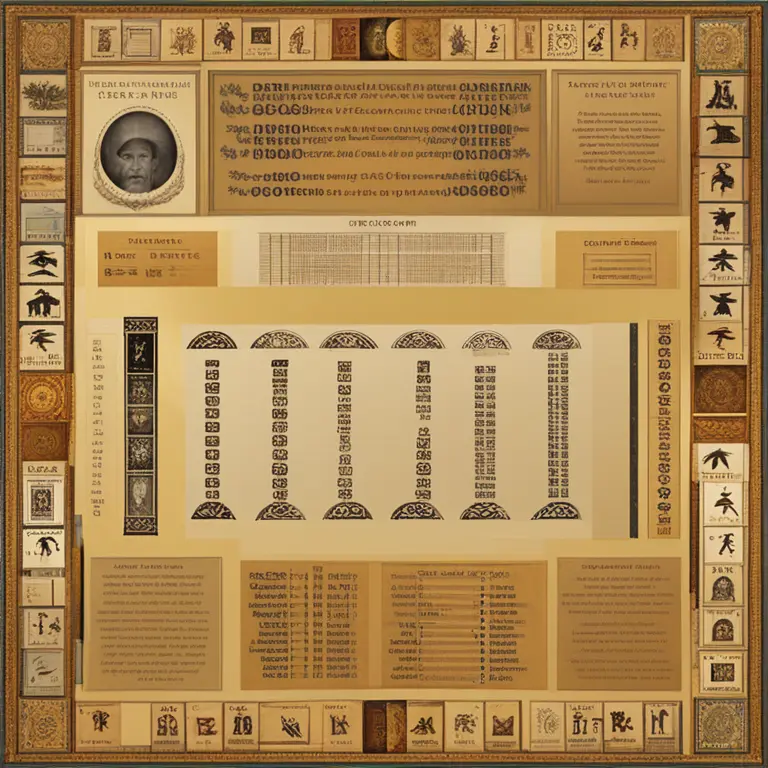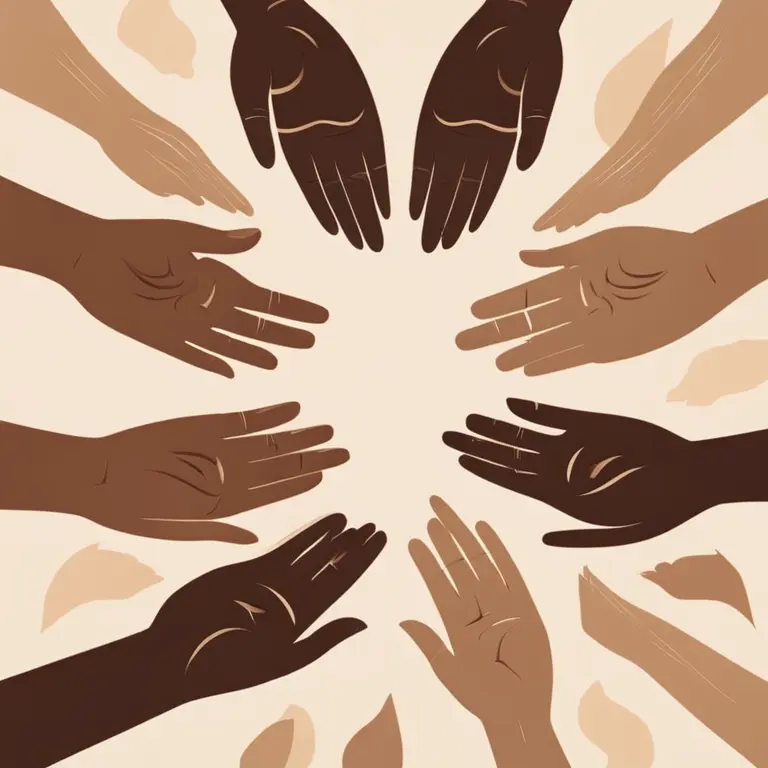
The Artisans of Palmistry: Professionals Who Read Palms
Discover who the practitioners of palmistry are, their skills, and how they interpret the lines of your hands to reveal life insights.
article by Nora Pennington
Introduction to Palmistry Practitioners
Palmistry, an ancient art of divination, involves the study of the palm to interpret personality traits and predict future happenings. The practitioners of palmistry are often known as palmists, hand readers, or chirologists. Stemming from various cultural traditions, nowadays, they come from myriad backgrounds but are united by their mastery in reading the intricate lines and shapes of the hands. As interest in personal well-being and spirituality grows, palmists remain sought-after for those seeking personal insights and life guidance.

Training and Expertise
The modern palmist typically undergoes extensive training to hone their craft. This education may include a mix of self-study, mentorship, and formal courses. Some palmists may hold certifications from reputable institutions that specialize in metaphysical studies. Their skill set includes not only a deep understanding of the lines on the palms but also a knowledge of hand shapes, finger lengths, and the mounts (or fleshy pads) on the hand, all rich with psychological and predictive implications.

The Significance of Palmistry Sessions
Individuals seek consultations with palmists for various reasons. Some might be at a crossroads in life seeking direction, while others are curious about their interpersonal relationships or professional pathways. A seasoned palmist can offer insights into an individual's strengths, challenges, and potential future events. Although not an exact science, many find solace and guidance through the intimate and personal nature of a palm reading session.

Palmistry Across Cultures
The practice of palmistry is not confined to one culture or region; it has historic roots that span across Indian, Chinese, Egyptian, and Greek civilizations, among others. Contemporary palmists often draw on this rich heritage, combining traditional techniques with modern psychological concepts. The global digital era has also enabled palmists to reach a broader audience, offering their services via online platforms and harnessing technology to provide readings for clients regardless of geographical location.

Choosing the Right Palmist
With the prominence of wellness and self-improvement culture, finding a reputable palmist is crucial. It is advisable to seek out practitioners with good reviews, verified credentials, and a professional presence. Many palmists today have an online profile through which potential clients can get an idea of their approach and philosophy before booking a session. A genuine palmist is ethical, empathetic, and respects client confidentiality.
Technological Advancements and Palmistry
The art of palmistry has embraced technological advancements, with artificial intelligence and machine learning algorithms beginning to play a role. Some online platforms offer automated palm readings based on photographs submitted by users. However, most enthusiasts and experts agree that the human touch in interpreting the nuanced aspects of hands cannot fully be replicated by machines. This harmonious blend of tradition and technology represents a unique aspect of modern palmistry.
Published: 1/11/2024
Modified: 1/12/2024
More predictions
Come back here soon to learn more about yourself and your future


Can We Trust Palmistry?
Delving into the realm of palmistry, this article examines its credibility and place in contemporary spiritual practices.


The Possibility of Palmistry in Cancer Detection
Examining the claims that palmistry holds any potential in identifying the risk of cancer: a deep dive into the world of mysticism and medicine.


The Efficacy of Palmistry: Real Insight or Fancy?
Delve into the validity of palmistry as a form of divination. Is there a truth behind the lines on our palms, or is it just a charming fancy?